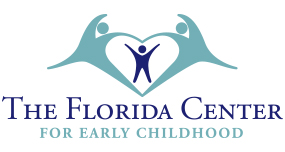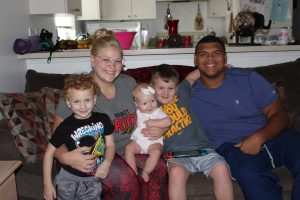Is it Autism, Prenatal Substance Exposure, Genetics, or All of the Above?
By Kathryn Shea, President and CEO of the Florida Center for Early Childhood
 At The Florida Center, we are witnessing a growing number of very young children entering our programs with a multitude of developmental issues. Some, as young as two, have been diagnosed with Attention Deficit/Hyperactivity Disorder, or ADHD, and rejected from multiple pre-school programs – two!!
At The Florida Center, we are witnessing a growing number of very young children entering our programs with a multitude of developmental issues. Some, as young as two, have been diagnosed with Attention Deficit/Hyperactivity Disorder, or ADHD, and rejected from multiple pre-school programs – two!!
Some show signs of being on the Autism Spectrum Disorder, yet are not clearly autistic. And many are off the developmental target in so many areas, especially when it comes to self-regulation. What we might be witnessing, and this is speculation, is the outcome of the opioid epidemic that exploded in our county three years ago.
Sarasota and Manatee counties were hit exceptionally hard, leading the state in overdose deaths, according to state reports. This resulted in babies and young children entering the foster care system. Florida saw a 10-fold increase in babies diagnosed with neonatal abstinence syndrome, or NAS, conditions caused by drug withdraw that some newborns experience after in utero exposure to drugs. Manatee and Sarasota counties were among the top ten counties in the state to experience the highest number of babies born opioid-exposed.
Most of these babies were discharged to foster care or kinship homes or left the intensive care unit with their birth parents. There was no required follow up of their developmental status as a group, and the fact that they were prenatally exposed to substances, was at risk of getting lost along the way.
Instead, the focus tended to remain on the parents; seeking treatment, staying clean, following their case plan, etc. While that was critically important, here we are three years later and a high number of little ones hitting the steps of our preschool come with a multitude of special needs.
Most early learning teachers will tell you they are not qualified, nor have sufficient knowledge of skills, to teach these challenging children. I can tell you, they are a challenge for even the most highly skilled early childhood professional. Most preschools cannot afford to pay exceptional education teachers the salary they deserve, nor have the resources for supports (therapies, additional individual education/supervision) these children require. If they are fortunate enough to be accepted into a preschool, they are at very high risk of being expelled.
Our Center has had a number of little ones under age 5 who have been expelled from two or more preschool programs because the schools could not handle the child’s intense needs. Without special services, they enter kindergarten totally unprepared and way behind their peers both educationally, and most importantly socially, emotionally, and behaviorally. There, they become the overwhelmed kindergarten teachers and school district’s problem. At this point in their life, we can pretty much write the “rest of the story.”
It doesn’t have to be this way. If early education centers had the necessary resources to support the high needs of these children, the outcomes could be very different. Thanks to the Charles and Marjorie Barancik Foundation, The Florida Center for Early Childhood was able to add a licensed mental health counselor and an additional individual floater teacher at both of its Starfish Academy early education sites (Sarasota and North Port) last year.
Our educational team of teachers, speech and occupational therapists, and social/emotional consultants believe this cross-disciplinary team of experts have not only prevented some very high needs children from being removed from our preschool, but have truly helped getting their “individual differences” more acutely identified with more specific and appropriate interventions in place, both at school and at home.
In the end, the specific diagnosis is not nearly as important as what you do about it, and sometimes the label places the child in a stereotypic “pigeon hole” that can hold back the dreams and expectations teachers and parents have of that child’s true potential. Our team has certainly witnessed some “miracles” in our children that no one, including their pediatrician, ever thought possible.
This progress cannot continue without the resources to make it happen! Our Florida House Speaker, José Oliva, is considering the concept of 2020 as the “Year of the Child.”
Let’s all contact him and encourage him to follow through with this idea and ensure adequate resources to make it meaningful.


